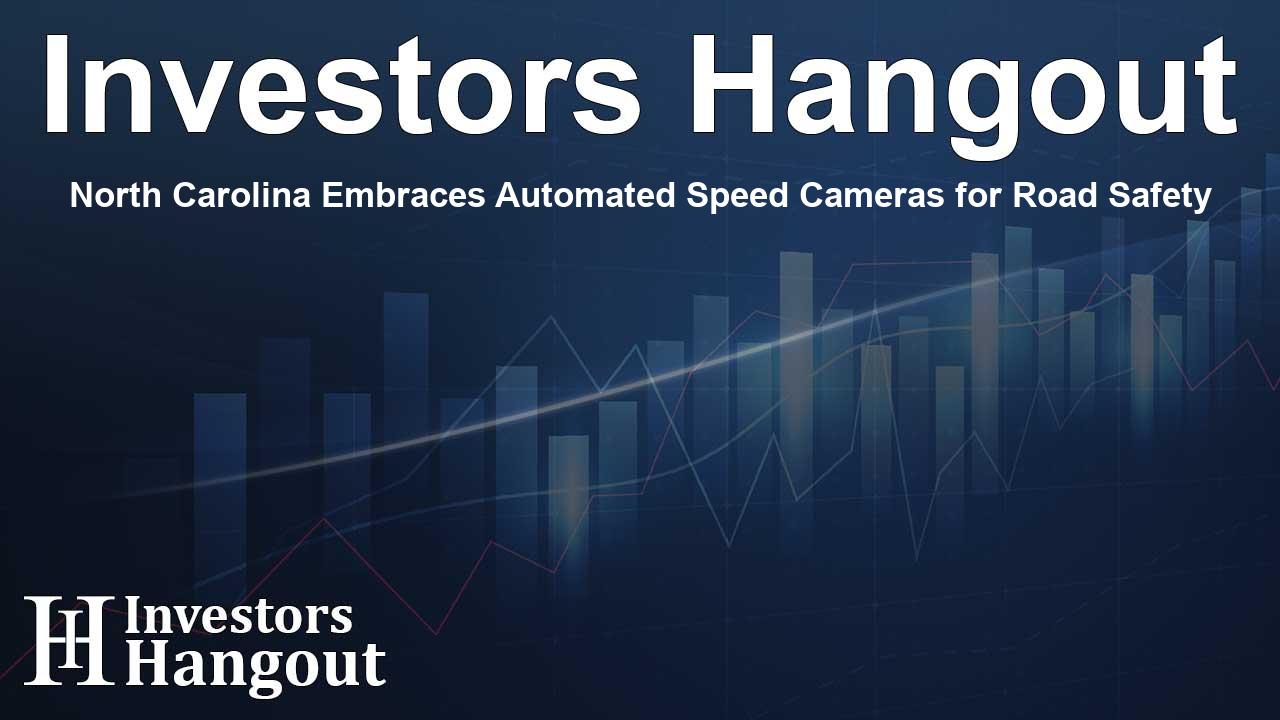North Carolina Embraces Automated Speed Cameras for Road Safety

New Legislation Promotes Safer Roads in North Carolina
In a significant step towards enhancing road safety, North Carolina is poised to launch a new program that reflects the urgent need to address speeding on its roads. Families know all too well the risks inherent in their daily travels, particularly in school zones where the stakes are high. With alarming statistics highlighting the frequency of speed-related accidents, local authorities are on a mission to implement effective measures that prioritize community safety.
Speeding: A Major Threat to Community Safety
The continued prevalence of speeding on North Carolina's roads is a pressing issue that requires immediate attention. Recognizing this, the North Carolina State Highway Patrol has initiated a campaign called "Speeding Catches Up With You." Set to kick off soon, this campaign empowers municipalities to utilize automated speed cameras in school zones as part of a broader effort to improve driver behavior rather than penalize those who abide by the rules. The goal is clear: to forge safer journeys for everyone, especially children walking or biking to school.
The Role of Automated Speed Cameras
The Federal Highway Administration has backed the use of speed safety cameras as an effective countermeasure for speed management. Their recommendations highlight the importance of these tools in enhancing highway safety, providing tangible evidence that such measures can lead to decreased speeding incidents and, in turn, safer roads. This move is not merely about punishment; it’s about fostering a culture of safety among drivers.
Success Stories from Nearby States
The efficacy of automated speed enforcement is already evident in neighboring states like Virginia and Florida. In Virginia, successful implementation in areas like Suffolk saw a staggering 97% reduction in speeding incidents, demonstrating that when drivers know they are being monitored, they are more likely to adhere to speed limits. Similarly, Albemarle County recorded over a 90% decline, particularly in zones with high pedestrian traffic, showcasing the potential of these systems to save lives.
Positive Impact in Florida
Florida's experience further validates the potential success of these initiatives. With school zone enforcement having been in place since 2023, reports of significant reductions in speeding violations have emerged. For instance, in Eustis, speeding offenses fell from 21,740 per month to just 502, resulting in a remarkable 97.7% reduction. Furthermore, Baker County noted an 89% decrease in violations even before citations were formally issued, indicating a proactive shift in driver behavior.
Altumint: Pioneering Automated Enforcement Solutions
At the forefront of this movement is Altumint, a key player in the realm of automated speed enforcement with a strong presence in Virginia and Florida. Known for their innovative approach, Altumint introduced school zone speed cameras that have successfully reshaped driver behavior. Their expertise underlines that:
- Automated enforcement systems serve to protect vulnerable road users, including children and pedestrians.
- Programs are designed to ease the burden on law-abiding citizens by providing fair warnings, clear signage, and a transparent process for citations.
- The financial model is violator-funded, ensuring taxpayers are not burdened with the costs associated with the program.
As North Carolina gears up to implement these vital safety measures, Altumint is well-positioned to provide communities with the necessary support for a smooth rollout of these effective safety solutions.
About Altumint
Altumint is an American-owned firm dedicated to enhancing community safety with advanced enforcement technology. Their solutions incorporate artificial intelligence to detect and address violations such as speeding in critical areas, offering invaluable assistance to law enforcement agencies. With a commitment to safety, integrity, and continuous improvement, Altumint strives to deliver outstanding service tailored to the needs of communities.
Frequently Asked Questions
What is the purpose of the automated speed cameras in North Carolina?
The automated speed cameras aim to reduce speeding violations in school zones, improving safety for children and other road users.
How successful have similar programs been in other states?
States like Virginia and Florida have experienced dramatic reductions in speeding incidents and improved community safety thanks to automated enforcement.
Will the implementation of these cameras affect law-abiding drivers?
The programs are designed to minimize inconveniences for law-abiding drivers through fair warning systems and transparent citation processes.
How does Altumint contribute to the implementation of these safety measures?
Altumint offers expert support and advanced technology for the effective deployment of automated speed enforcement in communities.
Is the program funding burden placed on taxpayers?
No, the program is designed to be violator-funded, which means taxpayers will not bear the costs of enforcement.
About The Author
Contact Owen Jenkins privately here. Or send an email with ATTN: Owen Jenkins as the subject to contact@investorshangout.com.
About Investors Hangout
Investors Hangout is a leading online stock forum for financial discussion and learning, offering a wide range of free tools and resources. It draws in traders of all levels, who exchange market knowledge, investigate trading tactics, and keep an eye on industry developments in real time. Featuring financial articles, stock message boards, quotes, charts, company profiles, and live news updates. Through cooperative learning and a wealth of informational resources, it helps users from novices creating their first portfolios to experts honing their techniques. Join Investors Hangout today: https://investorshangout.com/
The content of this article is based on factual, publicly available information and does not represent legal, financial, or investment advice. Investors Hangout does not offer financial advice, and the author is not a licensed financial advisor. Consult a qualified advisor before making any financial or investment decisions based on this article. This article should not be considered advice to purchase, sell, or hold any securities or other investments. If any of the material provided here is inaccurate, please contact us for corrections.
